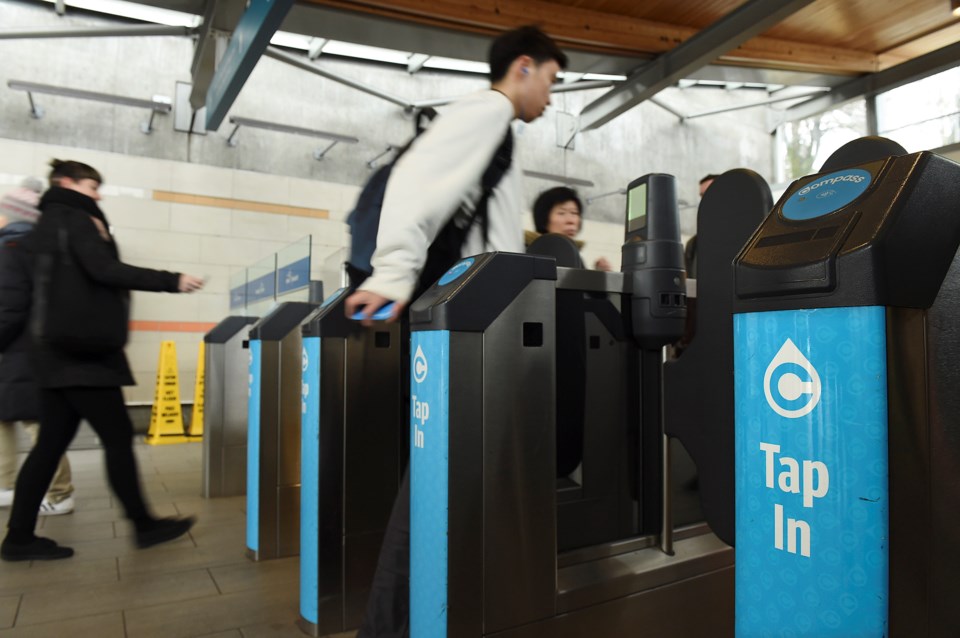When I first moved to Vancouver I was equal parts delighted and dismayed at the city’s public transit system.
Coming from car-dependent Edmonton, I was delighted that the express buses and SkyTrain lines could take me almost anywhere I wanted to go. And I was dismayed that I could ride them for free, largely consequence free. “What kind of transit system in any decent-sized city runs on the honour system?” I remember thinking, likely as I gave a cursory glance over my shoulder and proceeded pass the ticket machines unchecked.
It’s worth noting I was only 19 at the time and have since reformed — somewhat. Turns out I am not all that honourable, and neither are many of you. Fare evasion costs the regional transit authority an estimated $18 million a year in lost revenue, more if you count the 70 per cent of fare evasion fines that go unpaid thanks to a largely toothless penalty system that ties them to driver’s licence renewals (which tends not to be much of a concern if you’re depending on transit to get around).
I’m not defending my transgressions. I believe in public transit and I believe users should pay for it. But I also know human nature is inherently opportunistic and drawn towards the path of least resistance. For the vast majority of my time in Vancouver, I’ve paid my way onto TransLink’s buses, boats and trains, with all manner of passes, tickets and pocket change. But I’m also among a sizeable contingent of transit users that developed a habit of skipping out on the fare whenever we found ourselves in a hurry, out of change, or just feeling lazy when the B-Line happened to pull up. It was just so easy, as if TransLink was asking for it.
This is precisely the kind of behaviour that, ideally, will be curtailed with the full implementation of the Compass Card system. With this week’s closing of the fare gates at SkyTrain, Canada Line and SeaBus stations, TransLink has finally taken the logical step toward ending the culture of freeloading it unwittingly fostered for all these years. But this is only the beginning of the work it has to do to foster a culture of respect toward the organization.
It’s been nearly a year since Metro Vancouver residents handed TransLink a smarting rebuke by overwhelmingly voting down the transit plebiscite that would have brought a 0.05 per cent sales tax into to region to pay for $7.5 billion in transit improvements. The no side, you may recall, coasted to a victory by leveraging the public perception of TransLink as a blundering, bloated and inept entity — precisely the kind that would leave fee payments for a cash-strapped piece of critical public infrastructure up to individual good will.
Since then, some things have changed, but more things have not. A new city-friendly federal government has promised $340 million for transit projects in the Lower Mainland and upped their contribution to 50 from 30 per cent for future projects. But cities in the region are still scrambling to come up with their portion of the price tag for badly needed transit improvements, and public confidence in the transit authority has scarcely budged.
TransLink has done little to mend its tattered reputation or fight a perception of inflated executive pay and lacklustre service. The fact that the Compass Card system is years behind schedule and comes with technical glitches that still allow for fare evasion on the B-Line (or the “free bus” as one friend calls it) does not bode well for any future funding sources that require public support. Nor does the fact that in the process of implementing the new system TransLink was forced to downgrade fares on all bus routes to a single rate, or that despite years of planning, fare gates weren’t designed to accommodate paralyzed transit riders unable to tap in or out.
As it is, the final rollout of the Compass Card system is more a limp past the finish line than cause for celebration. It is undoubtedly an improvement over the old honour system. But while TransLink may finally be able to force an end to the flippant free-for-all culture among many riders with the activation of its fare gates, whether it will ever command respect from the public remains to be seen.
Jessica.Barrett@gmail.com
@jm_barrett



